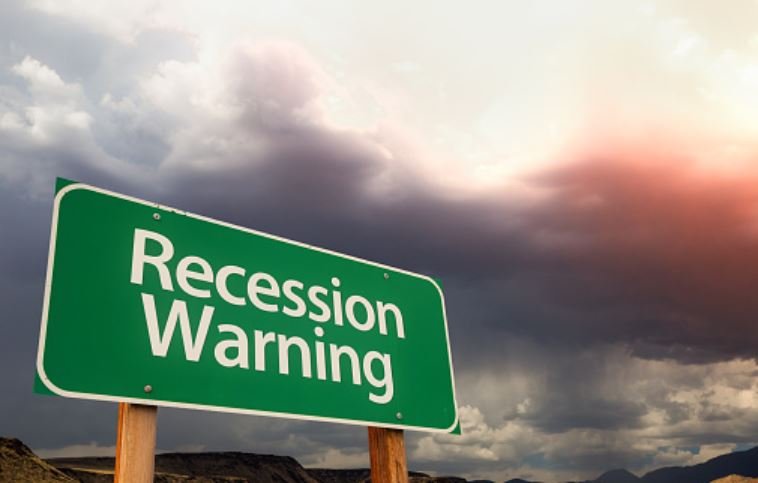Finance
4 Financial Mistakes People Make During a Recession

According to Kiplinger, recessions have occurred once every 3.75 years since 1857. The average recession since then has lasted a little under 17.5 months. So, recessions are bound to happen every so often. The key is not to worry about them but to know what to do and what pitfalls to avoid. That way, you can make it through the recession without damaging your finances. This article will dive into four financial mistakes seniors should avoid to weather a recession.
[lwptoc numeration=”none”]
1. Not having an emergency fund
An emergency fund is a money set aside in a savings account for job loss, major car accidents, unexpected medical bills, and other expensive surprises. These are vital for seniors to have in any economy. But it’s especially important in a recession, where the chance of job loss and market losses are higher. General recommendations say to save three to six months of expenses in your emergency fund, and aiming for the higher end may be a good idea during a recession.
2. Not buying enough life insurance
Life insurance for seniors can be well worth the premiums when a recession comes around. If you pass away unexpectedly while the policy is in force, you can rest assured that your death benefit alleviates financial worries for your loved ones. Here are some life insurance policies to consider:
Term life insurance
Term life insurance lasts for a set time — 10 to 30 years, depending on your choice. If you outlive the policy, you must get a new policy to continue coverage. However, premiums are affordable, and policies are straigh forward.
This can make term life insurance an excellent potential option if you need coverage for tough economic times, such as a recession. You keep costs low while ensuring your loved ones are covered.
Whole life insurance
Whole life insurance can cost more than term life insurance, but you’re covered for life. You also get a cash value growth component. Part of your premiums goes into this component, which grows tax-deferred at a fixed rate. This fixed rate helps to guarantee account growth, even in a recession.
Once your cash value grows enough, you can borrow against it or withdraw from it. If you surrender the policy, you receive the cash value minus surrender charges.
Final expense insurance
Final expense insurance is a small permanent life policy for end-of-life costs, like funeral expenses and long-term care. Premiums and death benefits are lower, and you still get a cash value growth component. As a result, these are cost-effective ways to continue building wealth in a recession and financially help loved ones if you pass away.
3. Pausing retirement contributions
Money may get tighter, but pausing retirement contributions can be a big mistake. Many retirement accounts offer tax benefits, helping you set aside money for the future more cheaply. Plus, you could miss out on account growth by not contributing to retirement. The more you contribute early on, the more potential growth you could see, thanks to compounding.
4. Selling out of the market
Being in the market during a recession can be scary. Everything is falling — but that’s also why getting into the market can be a good idea. For one, you can buy while stocks are at lower prices. The stock market may also recover when the economy recovers, helping you maximize growth potential.
Additionally, bear markets could be good for some investors. For example, half of the S&P 500’s best trading days in the past 20 years happened in bear markets. Plus, stocks have lost 36% on average during a bear market but gained 114% on average during a bull market.
Past market performance cannot predict future results. However, this data shows that staying in the market when it’s down has a strong chance of paying off if you’re invested in the right assets. All that said, speak with a financial professional to create a plan for helping your investments make it through a recession.
Avoid these financial mistakes during a recession
Although the thought of recession can make your stomach turn, you can make it through more easily by avoiding several money mistakes. First and foremost, build an emergency fund as soon as possible. Aim for at least three months, but ideally six or more. Buy or increase life insurance coverage as well in case the worst happens during the downturn.
Meanwhile, keep contributing to your retirement account. Don’t sell out of the market if you don’t have to. Consider adjusting your risk tolerance during the recession to continue saving and investing. Following these tips can help you avoid recession pitfalls and make it through unscathed.
Also check: Despite the European Recession, Bitcoin Offers Optimism
-

 Celebrity4 weeks ago
Celebrity4 weeks agoIs YNW Melly Out Of Jail? What Is The YNW Melly Release Date, Career, Early Life, And More
-

 Sports4 weeks ago
Sports4 weeks agoMore Than Just a Game: How College Sports Can Shape Your Future
-

 Tech3 weeks ago
Tech3 weeks agoAI Software: Transforming the Future of Technology
-

 Tech3 weeks ago
Tech3 weeks agoAll About Com. Dti. Folder Launcher: Features, Benefits, Tips, And More













